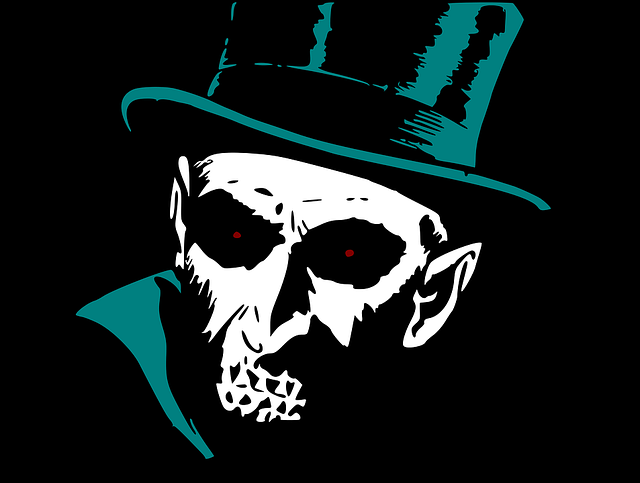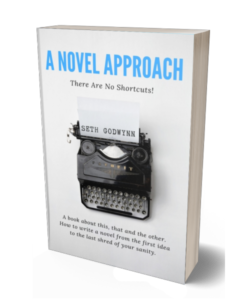Why do we Write?
Seth Godwynn
Novels come in all shapes and sizes, and from every corner of the mostly cornerless globe.
It’s easy to look down our noses at cliché-ridden tripe filled with vampires, weird sexual fetishes, or any other flash-in-the-pan genre that was popular before, but hasn’t quite fizzled out yet. We might laugh at romance novels where the entire setup is appallingly apparent from the outset, or mock the latest detective fiction where a gritty and grizzled policeman faces off against someone who reminds him just a little too much of himself. Admittedly, that last one does sound like it could be pretty good.

There are as many types of works out there as there are people who enjoy them. Even the most intelligent and seasoned of readers might enjoy a little coffee-table entertainment once in a while. We all like something we know isn’t really good for us, after all. That’s why diets exist.
So while we might not all enjoy the same thing, we can all, at least, appreciate that there are people with different tastes and it isn’t our place to judge or censor their enjoyment of it.
It’s the same with authors.
Just as there are a wide array of genres and styles, there are also a host of different kinds of authors, and some are more respected than others.
The authors getting the most respect are the ones selling the most books, but is that really a reasonable state of affairs? Some of the books that have made the biggest impression on the buying public probably had no business being published in the first place. While some of the best-selling works of recent times have been extremely shoddily written, others have seen their creators defending charges of plagiarism in perpetual court battles that their protagonists couldn’t make magically go away.
Despite the fact that the best-selling books are frequently of the least value, we keep showering admiration and respect upon their writers, often undeservedly. Are long-running series about supernatural romances going to define our century? Are future generations going to look back at the great literature of our time and think that we were a worthwhile generation of readers?
The better selling novels rarely define a genre or capture the imagination of future generations. Authors accept it as a quirk of the business. It’s been true of art for centuries that most of the things that sell are entertaining for their time, and rarely last longer than the period of excitement they generated.
The publishing industry survives off the one percent of books that thrive in the fickle market. The rest just exist, never managing to earn the writers enough money to buy a ticket home. So, if everything is against us, why do we do it?
Authors are not a sexy people. It really had to be said. We might produce fantastic characters that become iconic symbols, but we are probably less of them ourselves. We get old, we are sometimes overweight, bald, goofy and usually wear glasses from many hours staring at screens. Not many people would meet an author and feel a burning need to wear the same cardigan, imitate their pot-bellies, or otherwise match their style.
We’re not rich. We can probably all think of a few names of writers that have tremendous success but they are extremely few and far between. Most writers have to have a day-job and write in every available gap in-between. We wear the same old clothes, we drive battered old cars and you won’t spot many of us in expensive restaurants.
You hear all the time about how people never read anymore. That might be true, or it could simply be that the audience is increasingly disillusioned with the work being published. In any case, novels spend more of the time sitting on shelves than they do being held up to a human face, taking their minds into journeys beyond their own imagination.

Books aren’t what they used to be, there’s no denying that. The audience isn’t what it used to be either. A very large chunk of it has been seduced by the endless flickering lights of their television sets and handheld devices.
If you do manage to write a book, then it has almost no hope of success. You’re one whispering voice in a sea of screams, and the chances of your work finding its audience are statistically zero. Even a book about a literal sea of screams has little chance of success, though it does sound like a fun idea to run with. Of what material would such a sea be comprised, you know, besides endless caterwauling?

So there it is. Everything is against us. The audience is largely ambivalent, and is increasingly suspicious of new authors. They regard self-publishing as a garbage dump for work that doesn’t deserve to be published by traditional means, and with very good reason, that being because they’re mostly right. Other authors sneer at one another, forming little cliques and trying to push out the genres they personally dislike. The industry is as open and welcoming as the snapping jaws of a hungry crocodile, and you’re probably doomed if they don’t like you.
The poor sea wailed for nothing.
So why bother? What’s the real reason that writers take to their keyboards, pick up their pens and dare to imagine? The fact is that real authors do it for none of the reasons above. We don’t do it for the money, the fame, the recognition or success. We don’t write to be accepted, we don’t create so that our names will live on forever. If we did, it would suggest that something has gone awry in our think offal.
The real reason that real authors write is because they exist to do exactly that. The story is what’s important. It fills our minds and has to be vented out onto the page. We read and we process and we create and we have no real choice in the matter. Writers have to write, we’re driven to produce the very best work we are able to do. We’re on an endless quest to create the highest quality work we’re able to produce.
That’s the difference between a real author and the deluge of howling amateurs that has jaded the reading audience. If you’re thinking of joining the growing throngs of the desperate, then pick a side.
Write because you have to. It’s the best way to make sure you tell a story worth reading. If enough of us can get together, maybe we can turn the tide that’s building against us and earn back the reading audience we’re in danger of losing forever.
Many thanks for reading this article. We hope it was interesting, informative and entertaining. Follow us on social media or share our content on your own pages. It helps us grow so we can create more free content to help you.

